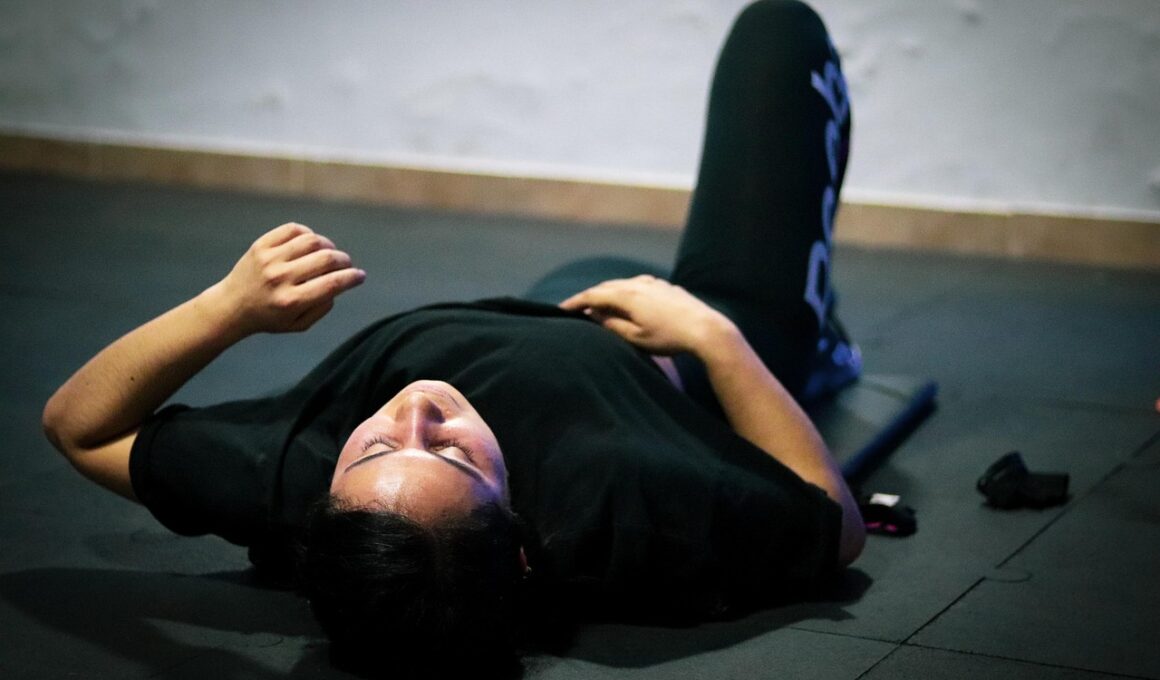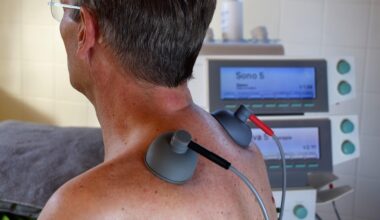Why Core Strengthening is Essential for Overall Health
Core strengthening is crucial to overall health, as it supports various bodily functions. A strong core stabilizes your trunk and pelvis, enabling efficient movement during daily activities. This improved efficiency helps in performing tasks, from lifting grocery bags to participating in sports. When the core is engaged, it also protects the spine, reducing the risk of back pain and injuries. Strengthening your core can enhance athletic performance, providing the necessary foundation for all physical activity. By focusing on the core muscles, individuals can also improve their balance, coordination, and posture. Proper posture goes beyond aesthetics; it plays a vital role in preventing chronic pain and joint issues. Furthermore, a stable core improves flexibility, allowing for a greater range of motion during workouts. This increased flexibility can also help in recovery after injury. Training the core consistently leads to a stronger body, which contributes positively to mental health by boosting confidence levels. Ultimately, investing time in core strengthening translates to enhanced quality of life, enabling individuals to engage in activities they love without limitations. Whether through classes or at home, core workouts should be prioritized for well-rounded health and fitness.
Many people often underestimate the importance of core strength in fitness. However, core strengthening workshops and classes have gained popularity for good reason. Participants learn various exercises designed to target abdominal, oblique, and back muscles collectively known as the core. These classes promote not only strength but also enhance overall wellness, making them suitable for everyone, regardless of experience. Instructors guide each session, emphasizing proper techniques to prevent injuries and maximize results. The supportive environment of these classes encourages camaraderie among participants, making the process enjoyable. Moreover, engaging in core workouts helps build a community, as many individuals share similar fitness goals. Taking part in group sessions fosters accountability, inspiring members to challenge themselves consistently. Classes may integrate different modalities such as Pilates and yoga, offering variety to keep participants motivated. An engaging atmosphere coupled with expert guidance leads to effective core strengthening. Additionally, these workshops often provide educational components, illustrating how core strength impacts everyday life. Understanding the science behind core training can enhance participants’ commitment to their fitness journey, motivating them to maintain a strong and engaged core long-term.
Incorporating core strengthening into your fitness regimen brings several benefits to daily life. For instance, individuals with strong core muscles tend to experience less fatigue during physical activities, as their bodies function more efficiently. This increased efficiency is particularly important for athletes and individuals who perform manual labor or enjoy recreational sports. Not only does a strong core decrease fatigue, but it can also lead to superior performance across various activities. With improved strength and stability, athletes can generate more power during their performance, directly impacting their outcomes. A stable core facilitates better movements, from running faster to jumping higher, ultimately increasing competitive advantage. Additionally, strong core muscles enhance athletic endurance, allowing for prolonged engagement in high-intensity activities. Everyday tasks like bending, lifting, and twisting become easier when the core is strong, reducing the risk of injury. Learning proper core techniques through workshops can equip individuals with skills that benefit their overall fitness experience. Utilizing effective core workouts regularly maintains engaged muscles, ensuring not only health benefits but also an enjoyable path towards fitness goals. Hence, prioritizing core strengthening is a smart step for anyone seeking overall health improvements.
The Role of Core in Posture and Balance
The central role of the core in posture and balance cannot be overstated. Strong core muscles contribute significantly to maintaining an upright posture while sitting or standing. Poor posture can lead to various health issues, including chronic back pain and joint problems. When core muscles are engaged, they help align the body properly, reducing undue stress on the spine. Balanced alignment is essential for preventing discomfort and ensuring long-term body health. Also, maintaining proper posture requires less energy, allowing individuals to function effectively throughout the day. Enhanced core strength equates to better balance, as a stable torso improves overall body control. Activities like yoga and Pilates focus heavily on core strength, training individuals to develop better body awareness. This awareness translates to improved reactions during dynamic movements, helping prevent falls and injuries. Furthermore, effective core workouts can assist in rehabilitation processes for those recovering from injuries. A stronger core serves as a protective mechanism against potential injuries in both the gym and daily life. Engaging in dedicated core strengthening will pave the way for heightened balance, coordination, and improved overall postural alignment.
Core strengthening exercises are adaptable, making them accessible for varied fitness levels. Individuals can choose from a wide range of workouts designed to meet their needs, from beginner-friendly options to advanced challenges. Exercises, such as planks, bridges, and Russian twists, can be modified to suit any fitness journey. This adaptability allows anyone to participate in core strengthening classes or workshops regardless of previous experience. Training environments often provide necessary equipment, such as resistance bands and stability balls, enhancing workout potential. Additionally, modifications encourage gradual progress, fostering a sense of accomplishment and motivation. The supportive nature of workshops helps attendees feel comfortable trying new techniques even if they’re beginners. This sense of camaraderie alleviates the intimidation that often accompanies new fitness experiences. Participants gain confidence as they explore their capabilities in a friendly setting. Furthermore, classes often emphasize the importance of consistency and persistence, encouraging attendees to stay committed to regular practice. Continued participation leads to noticeable improvements in strength, efficiency, and overall fitness. As a result, adaptive core workouts form a meaningful element of a successful fitness journey.
Enhancing Mental Health through Core Workouts
Engaging in core strengthening can significantly bolster mental health as well. Exercise, in general, is a renowned mood booster, helping to alleviate symptoms related to anxiety and depression. The endorphins released during physical activity create a natural high, improving overall mental well-being. Participating in core classes offers a community aspect that fosters connections among individuals. These connections contribute positively to mental health, as social interaction plays a fundamental role in human psychology. Moreover, core workouts often require focused concentration, helping participants to channel their energy into standardized movements. This mindfulness aspect allows individuals to get lost in the moment, minimizing stress or negative thoughts. Improved strength and stability also enhance self-image, contributing to increased confidence. As participants witness their progress, they feel a sense of accomplishment that can affect their mental resilience. Therefore, exploring core strengthening not only benefits physical aspects of health but also nurtures emotional well-being. Classes dedicated to core training foster a positive environment, promoting a holistic approach to health that integrates the mind and body. Ultimately, focusing on core strength leads to a balanced lifestyle suitable for lasting happiness.
A regular commitment to core strengthening brings lasting health improvements and contributes to a vibrant lifestyle. The range of benefits, from improved posture to enhanced athletic performance, demonstrates its vital importance. As individuals become aware of these advantages, they are often motivated to incorporate core workouts into their routine. Frequent practice builds a solid foundation for tackling challenges in fitness and daily tasks. Many individuals experience measurable results from core classes or workshops, elevating their fitness journey. Strong core muscles play a fundamental role in reducing the risk of injuries, particularly in athletes and active individuals. Additionally, a well-rounded core supports digestive health by promoting better alignment and easing abdominal pressure. A stronger core can also assist in maintaining healthy weight management by facilitating more efficient calorie-burning movements. Given all these positive impacts, it becomes essential for individuals to prioritize core strengthening as part of their fitness strategy. Finding enjoyable classes or workshops can help participants remain engaged and committed to their goals. Ultimately, embracing core workouts leads to a healthier lifestyle filled with confidence, vitality, and fulfillment.



